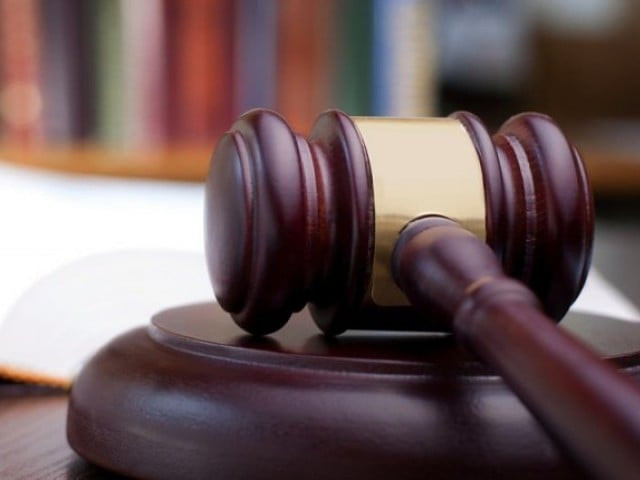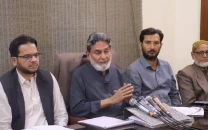Lawyers go on 2-day strike against proposed reform
Bar members call for reversal of NJPMC’s March 11 decision

PHOTO: REUTERS
The NJPMC –a body which includes all chief justices and which seeks to bring judicial reforms in the country – on March 11 resolved that applications under section 22-A CrPC might not be entertained by courts unless accompanied by decision of relevant district superintendent police (SP) for complaints.
In order to consider the NJPMC decision and the ‘prevailing situation arising out of the unrest among the legal fraternity’, a joint meeting of vice-chairmen and other representatives of Pakistan and provincial bar councils including Islamabad Bar Council (IBC) was held on Tuesday.
The joint meeting recalled that immediately after the said NJPMC decision, the legal fraternity gave its sharp reaction and unanimously called upon the committee to withdraw the said decision as per numerous press statements of the bar leaders and resolutions of the bar bodies.
The Pakistan Bar Council (PBC) being the apex regularity body also called upon immediate reversal of the said decision within three days. “It is a matter of regret that despite lapse of many days, the concerned quarters have not paid any heed to the unanimous demand of the bar,” it said.
The meeting said because of the NJPMC decision, an aggrieved person will have to appear before an SP instead of direct entertainment of applications by concerned police officials.
“[This] amounts to further expansion of powers of police which would not only leave the aggrieved persons at the mercy of police but will also open another avenue of malpractice at the hands of police,” the meeting noted.
The joint meeting announced ‘nation-wide lawyers’ strike for two days –March 20 & 21 (Wednesday and Thursday) – for pressing the demand for reversal of the decision.
It also announced to hold lawyers conventions at provincial capitals and at federal capital on the dates to be announced later, in case their demand for reversal of the NJPMC decision is not accepted.
Resistance to reforms
Chief Justice of Pakistan (CJP) Asif Saeed Khosa’s desire to revamp the criminal justice system is facing a major challenge from the legal fraternity, which is apparently not ready to accept his planned judicial reforms for expeditious justice.
Since the lawyers’ movement, whenever the judiciary has tried to take an initiative to introduce judicial reforms, the bars have fought tooth and nail against them. Reforms would become untenable without the support of the bar.
In 2009, former CJP Iftikhar Chaudhry introduced the National Judicial Policy for early disposal of cases, but lawyers criticised it, saying: “Justice hurried is justice buried”. When the Lahore High Court former chief justice Mansoor Ali Shah took initiatives for judicial reforms, he faced strong opposition from one section of lawyers. The situation was only ‘resolved’ when he was elevated to the Supreme Court.
Now, incumbent CJP Khosa is working to introduce judicial reforms to reduce unnecessary burden on judges but is apparently facing similar challenges.
CJP Khosa believes that currently, sessions and additional sessions courts, under the CrPC, 1898, are overburdened with cases related to giving directions to the police authorities for registration of cases.
He says such jurisdiction is tantamount to involvement of the judiciary in executive functions and is against the principle of separation of powers. From January 1, 2017 to February 28, 2019, a total of 614,307 cases were filed under section 22 A/22 B CrPC in the district judiciary throughout the country, while during the same period, 47,029 cases were filed in high courts under the said provisions.



















COMMENTS
Comments are moderated and generally will be posted if they are on-topic and not abusive.
For more information, please see our Comments FAQ